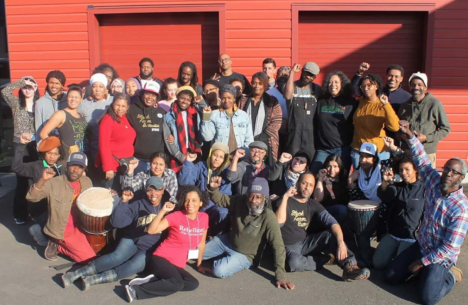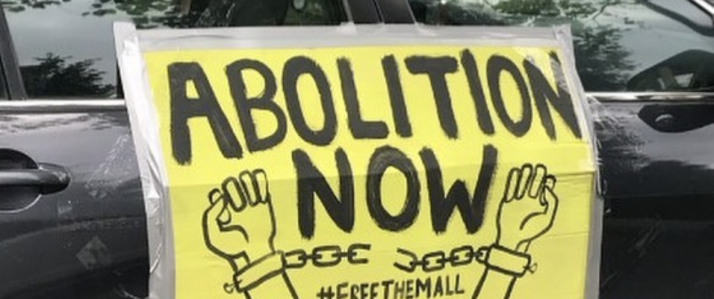But first, a recap:
At its very core, MRG believes that accountability to our community is absolutely crucial to our mission. So in that spirit—before I launch into grantee announcements—let me give you a quick update of what we’ve been up to.
To build our grantmaking program, further the capacity of grassroots organizers, and move toward a more connected social justice movement, this past year:
- We hosted the Transform Finance Institute for Social Justice Leaders, a two-day convening that brought together organizers from all over Oregon to learn about action leverage points within financial systems.
- We organized, in partnership with Oregon Futures Lab, a convening of EDs and funders of color to explore building relationships beyond grantee/funder paradigms.
- In March, in direct response to community requests, we organized a webinar with the Center for Nonprofit Law‘s Director, David Atkin, to discuss best practices around disbursing emergency funds to community members.
In addition, we gave feedback to 39 Fall Cycle applicants that were not successful in getting a grant; talked to an additional 30 organizations in preparation for the Spring Cycle; launched a new online application platform; hosted four webinars to familiarize applicants with our grantmaking process; and eliminated all written reports for our grantees, scheduling 45-minutes conversations instead, which allows us to know them better and hear about the opportunities and challenges surrounding their work.
On the grantmaking committee front, we’ve also made some changes. We no longer allow organizations to which our grantmakers belong, to apply for grants. Instead, those organizations receive smaller, yearly grants, which eliminates possible conflicts of interest and allows groups to focus on the work at hand, not on completing yet another grant application. We’ve also:
- Recruited six new grantmakers (and have one more in the pipeline, for a total of 10);
- Started compensating our grantmakers for their time and increased their travel reimbursements; and
- Have added professional development to our budget so we can continue supporting their leadership, learning, and growth.

Portland-area growers at the last Back to the Root Conference. Photo courtesy of Black Food Sovereignty Coalition.
A quick overview of our Spring 2020 grants, by the numbers:
- 20 – number of grants approved
- 19 – number of grantees led by Womxn/gender non-conforming/non-binary folks (95%)
- 12 – number of grantees led by Black, Indigenous and People of Color (60%)
- 7 – number of grantees who are first-time applicants to MRG (35%)
- 8 – number of grantees that are fiscally sponsored (40%)
- 11 – number of grantees serving the Portland Metro area (55%)
- 215,106 – average annual organizational budget of grantees
- 8,100 – average grant amount
Drum Roll Please!
- 350Deschutes, Central Oregon
- African Women’s Coalition, Portland Metro
- Beyond These Walls, Statewide
- Black Food Sovereignty Coalition / Black Futures Farm, Portland Metro
- Brown Girl Rise, Portland Metro
- Budding Roses, Portland Metro
- Camp ELSO, Portland Metro
- Community Outreach through Radical Empowerment (CORE), Willamette Valley
- Critical Resistance Portland, Portland Metro
- Freedom to Thrive, Portland Metro
- HAKI Community Organization, Portland Metro
- Micronesian Islander Community, Statewide
- Momentum Alliance, Statewide
- Northwest Center for Alternatives to Pesticides, Statewide
- NW Disability Support (NWDS), Statewide
- Portland Harbor Community Coalition, Portland Metro
- Right 2 Survive, Portland Metro
- Rogue Action Center, Southern Oregon
- The Blueprint Foundation, Portland Metro
- Trans*Ponder, Willamette Valley
You’re Invited to Learning Days
To ease the burden on grantees, our Grantmaking Committee decided to bypass the site visit stage of the application this year, recommending instead that we bring grantees together for a series of Learning Days, online-based get-togethers where panelist groups have an opportunity to connect with MRG board, grantmakers and staff, network with each other, and learn about each others’ work. If you’re interested in attending Learning Days, please let us know by emailing Violeta Rubiani ([email protected]) and we’ll send you an invite once we confirm dates and times!





